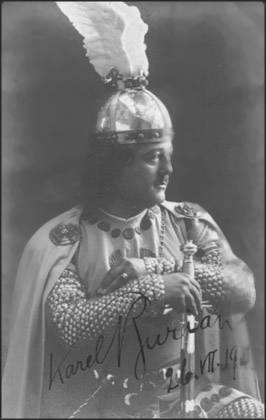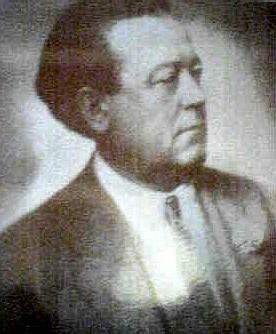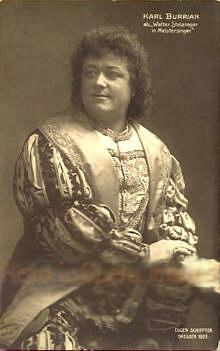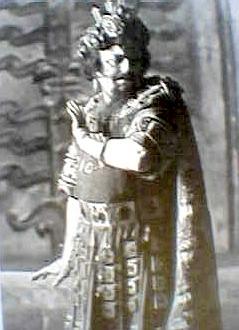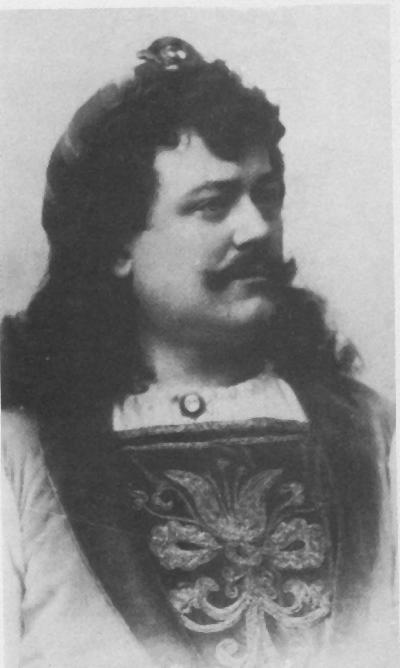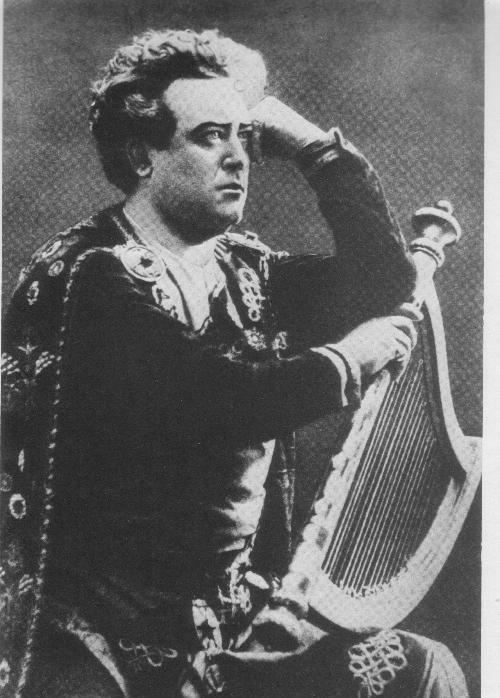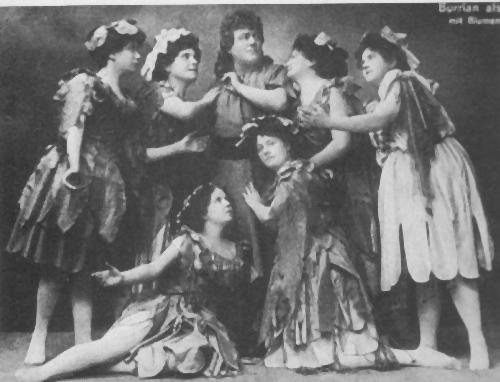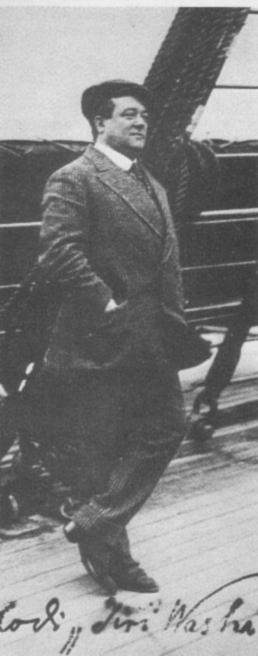|
" ... Sorry, but we cannot engage you into the choir, because in the higher register your face is getting all red ...."
(Audition at the Prague National Theatre, 1892)
from Karel Burian's book My memories, 1913
Karel Burian was born in Rousínov on January 12th, 1870, died in Senomaty, September 25th, 1924.
After an unsuccessful audition at Prague National Theatre, 22 years old Burian (teacher Wallerstein) left Prague
and was trying to get an engagement at other European theatres. Very soon he found an engagement in Tallinn (where he sang
Manrico, Faust and Lohengrin), then Aachen and Cologne, Berlin, Cologne again (this time together with his brother,
baritone Emil Burian), Hannover and Hamburg.
Despite success, Burian was still trying to get back to the Prague National Theatre
to sing Smetana, Dvořák etc. After a struggle, he was finally engaged there in title role of Smetana's Dalibor
and on July 28th, 1900 came his great performance under conductor Karel Kovařovic. But it was bitter-sweet victory.
His usual fare was Tristan, Tannhäuser, Siegfried... and suddenly he was asked to sing the Prince in Dvořák's
Rusalka, a role which didn't suit his voice. He said 'no' and the war was on again. Again, he left Prague and was engaged in
Dresden, where he sang his beloved Wagner, and again he is Tristan, Parsifal, Siegfried...
In 1905, he sang 128 Wagner performances in that theatre, and he was regarded as the most famous Tristan of his day.
For the next 20 years he sang Tristan, both Siegfrieds, Siegmund, Parsifal, Loge and Beethoven's Florestan in Fidelio.
In Dresden's 1905/06 season, he sang Herodes in Richard Strauss' Salome (world premiere), and again in Paris with Emmy
Destinn.
After Dresden, it was Berlin's turn, where he was Don José to Destinn's Carmen.
Next came Chicago, Philadelphia, Boston and on November 30th, 1906 he made his debut as Tannhäuser
at the Metropolitan Opera, under Arturo Toscanini. In 1908: Bayreuth for the first time, Burian sings Parsifal. Then he was
again in London and Paris, but also in Brussels and Budapest.
Subsequently he joined the Vienna Opera and made a brief appearance in Prague (but only at the German Theatre).
He was singing in Italian, German, Hungarian, French, but not in Czech.
Nobody wanted him there. In November 1910, Burian left Dresden, and in 1911, he finally sang Tristan on the stage of the
National Theatre in Prague. But it was for a very short time.
The singer had a problem with his voice, and the doctor said no to further performances. And that was the end.
After World War I, he went back to singing in Budapest, Vienna and the Balkans. Once again before his death,
he sang on the stage of the Prague National Theatre: in 1922, he had just one concert there. Two years later,
he was dead. His records were made rather casually, they only partially confirm his reputation.
Lynn Samohel
|
